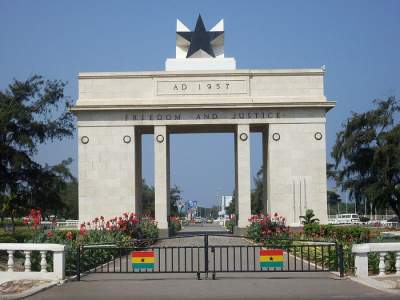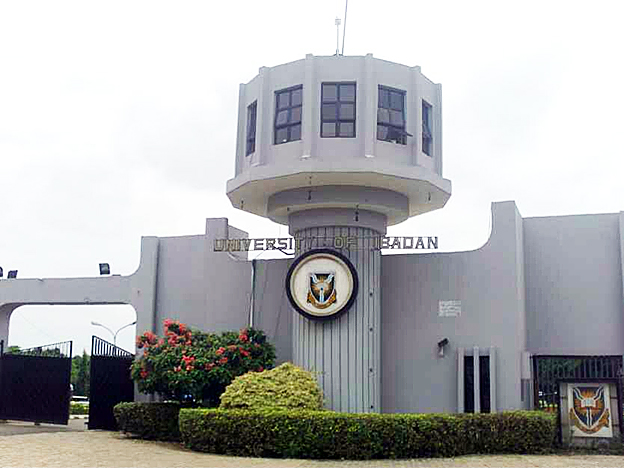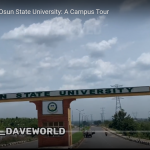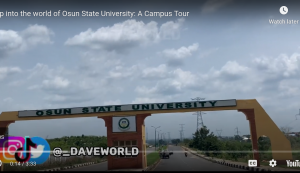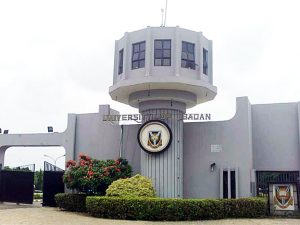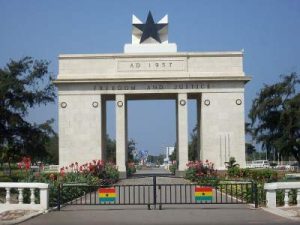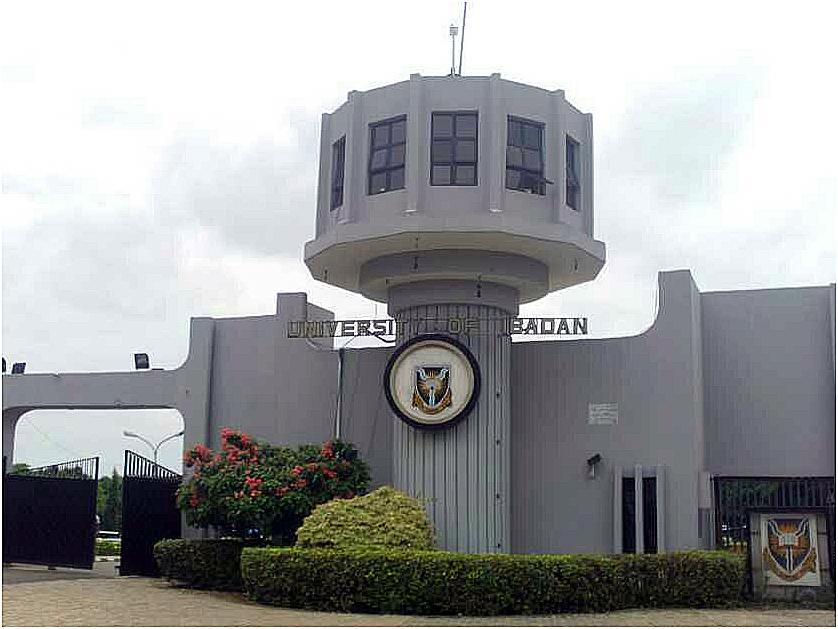
The University of Ibadan (UI), founded in 1948 is the first university to be established in Nigeria. Originally an affiliated College of the University of London, it was granted full independent status in 1962.
It began as a small institution with just three departments in Science, Medicine and the Arts and quickly expanded to become one of the country’s most prestigious higher education institution. Today, UI comprises thirteen faculties, including Social Sciences, Agriculture and Forestry, Education, Veterinary Medicine, Technology, Law, Public Health and Dentistry.
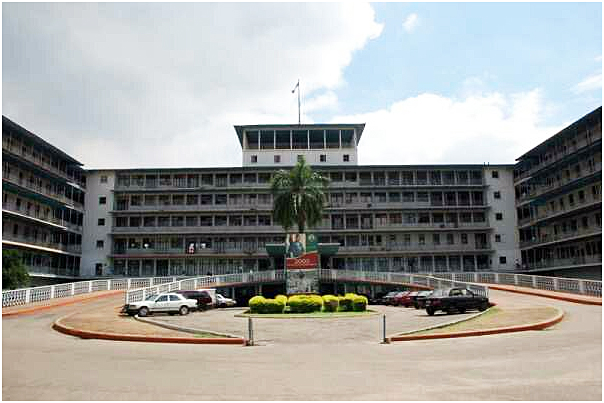
UI’s Postgraduate School is the largest in Africa, with its undergraduate and postgraduate student population split 50/50. Around a third of all students live in university-provided halls of residence – modern facilities that come equipped with gyms, cafes and common rooms.
The university’s philosophy is founded on making education available to all, with a well-established Distance Learning Centre where the same courses undertaken by full-time students are open to those whose access to education is restricted by finances or family obligations.
UI also runs a number of public facilities, including a media resource centre that offers educational workshops, reading services and consultancies for schools and children’s libraries.
The university also lays claim to its own zoological and botanical gardens, which house endangered animals and plants, and runs conservation programmes dedicated to supporting environmental needs.
Its future infrastructure development plans include a new business school and an Institute for Infectious Diseases.
UI is ranked Nigeria’s best university in the latest World University Rankings.According to the Times Higher Education (THE) rankings for 2023 both UI occupies the 401-500 spot in global ranking and first spot in Nigeria.
The Times Higher Education (THE) is a British magazine that specializes in higher education worldwide. In its latest World University Rankings 2023, no university in Nigeria made the first 300 on the list.
The 2023 ranking analyzed over 121 million citations across more than 15.5 million research publications. Over 1,799 universities across 104 countries and regions of the world were included.
Besides, survey responses from 40,000 scholars globally were analyzed.
The university is currently headed by Professor Kayode Oyebode Adebowale, the 13th Vice-Chancellor who assumed office in October 2021. Professor Adebowale had served as the Deputy Vice-Chancellor (Administration) of the university and Dean of the Faculty of Science before becoming the Vice Chnacellor.
The university is popularly recognized as one of the schools with the highest numbers of great achievers. It has produced a lot of public figures, including Wole Soyinka (Writer, Poet, Professor, Nobel Laureate); the late Bola Ige (lawyer, politician);the late Professor Chinua Achebe (Writer, poet, literary critic);the late Ken Saro-Wiwa (Author, writer); the late Professor J.P Clark (writer), etc.
The university tries as much as possible to provide a conducive environment for students to learn, having about twelve halls of residence which provide accommodation for about 30% of the population of students.
The institution also provides basic amenities like electricity, water supplies, adequate security which starts from the entrance of the school campus, properly checking anyone who is entering the school for suspicious dressings or actions. Cultism is something the school does not condone. Though the institution is reputable for being the first institution in Nigeria where cult activities started, the aim of the cultists then was not for war and violence, but instead to protect the interest of students.
Today, cultism thrives in most schools, but University of Ibadan has been able to handle it, by eradicating such actions from the campus, by hiring special security personnel, both on and off the school premises. The school also provides adequate health facilities which includes mental health clinic (with a visiting psychiatrist Wednesdays 8:30 am -4:00pm), surgical out-patient/orthopedic clinic(with a visiting orthopedic surgeon Tuesdays 12 noon-3:00pm), Dental clinician, diabetic clinic.
The school also offers public health services( immunisation, infant and maternal clinics, family planning services, control of infectious and communicable diseases), laboratory services, medical social work services(for counseling, students support, situational crisis management, home visits, issues in sex and sexualities), pharmaceutical services (for drug prescriptions), environmental health services(pests and rodents control which fumigates the various halls of residence just before the commencement of each session, physical therapy, Ambulance services (24 hours).
Admission requirements in addition to the subject combination for each department in the JAMB brochure. The following are the requirements by University of Ibadan.
University of Ibadan accepts five credits at only one sitting in the following faculties
*College of medicine (Basic Medical Sciences, Clinical Sciences, Dentistry, Public health)
*Pharmacy
University of Ibadan accepts five credits at one sitting or six credits at two sittings in the following faculties
*Agriculture and forestry
*Arts
*Education
*Law
*Science
*Technology
*The social sciences
Ibadan, which houses the university is the most populated city in Oyo State with population of about 3 million people, which makes it the third most populated city in Nigeria after Lagos and Kano. Ibadan is the capital of Oyo State which is located in the western part of the country with Kwara, Ogun and Osun as its neighboring states. The main occupants of the city are the Yorubas.
It is said that the earliest group of settlers of Ibadan were fugitives who were cast out from neighboring villages. The small group later grew in numbers with the arrival of immigrants from all over the western Nigeria. But today, the city is filled with people from different parts of Nigeria as well as foreigners.
The city is said to be a place of vast economic activities of which include agriculture, commerce, handcrafts, manufacturing, etc. Just like any other developed or developing city in Nigeria, stores, markets and malls can be easily accessed in the city. Within the city, there are two eight-day periodic markets IBUKE and OJE. Local crafts like weaving, spinning, dyeing, pottery-making and blacksmith still flourish, while the small businesses in the city engage in corn milling, leather works, wood and steel furniture making, photography, hotel management and motor and other repairs. Due to high commercial activities,
Ibadan is very motorable with good roads linking different areas together. The city has privately-owned Taxis, minibuses and regular buses which operate within the city.
The people of Ibadan are respectful as young boys prostrate to greet the elders, while young girls kneel down to do the same. The people of Ibadan speak Yoruba, which is the general language of the native people of the western part of the country.
In order not to get things mixed up on arrival in Ibadan, it’s better to learn some of their slangs, as these would help you understand them better. Some of these slangs include Gobe (problem), Ota lenu (making sense), ororo (liquor), Kondo alata (male private part), Se aya bi eyin (forming bad boy), Si idihaniyaeee (quarrelling with someone), Ejanla (rich, famous), Oloso (prostitiute), Orobo (fat person), Lepa (slim person),Skanskan (mad person), Ojuyobo (big eye balls),etc.
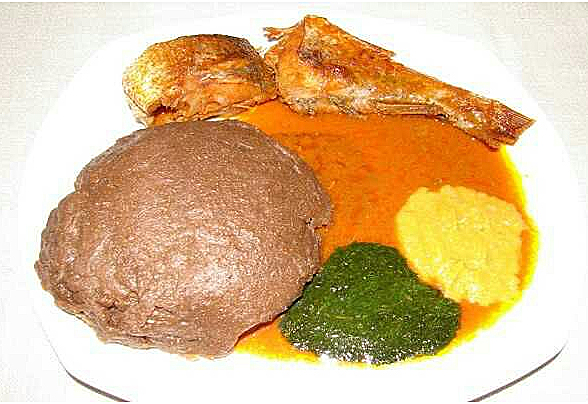
When it comes to food, nice canteens and restaurants can be found in the city, where one can buy varieties of food like rice, salad, beans, etc. But the main staple of the people of Ibadan includes moin-moin and eko; lafun and ewedu; snails; ojojo (grated water yam which is prepared like akara), Amala Gbegiri and ewedu etc which is usually garnished with bush meat, ponmo (cow skin), beef, chicken and fish.
The people of Ibadan share the same fashion sense with other western states. They have their asoibile, that is, their traditional clothes coming in different types and shades. Men and women have different types as it is a taboo for men to wear women’s clothes and vice versa. Aso-oke is a popular cloth in Ibadan and it comes in different materials. Men’s dress is said to be incomplete without caps, some of the caps include Gobi, Tinko, Abeti-aja, etc. Women also have different types of dresses, but the most popular is iro and buba (wrapper and blouse)
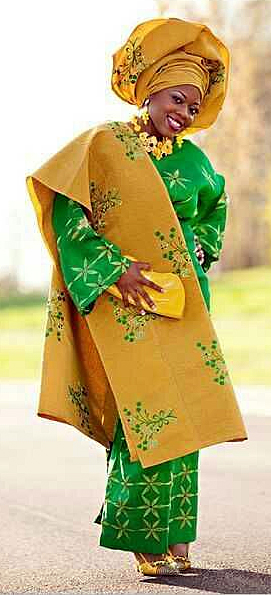
Instead of caps for men, women wear gele (headgear) which must be put on whenever iro and buba (wrapper and blouse) style is worn. But after the colonization of Nigeria by the Europeans and also due to interactions with other cultures through education, trade and religion, men can be found wearing suits and ties, jeans, polo, T-shirts, sweat shirts, and even baseball caps, while women wear gowns, trousers, etc. People of Ibadan sometimes wear traditional clothes of other cultures.
In Ibadan, the wet season is overcast, the dry season is partly cloudy, and it is hot and oppressive year round. Over course of the year, the temperature typically varies from 69°Fto 92°F.The hot season lasts for 2.8 months from January 14 to April 7,with an average high of 92°F and low of 73°F .The cool season lasts for 3.1 months, from June 22 to September 26,with an average daily high temperature below 84°F.The coldest day of the year is December 31,with an average low of 69°F and high of 90°F. The rainy period of the year lasts for 9.9 months, from February 2 to November 30,with a sliding 31-dayrainfallof at least 0.5 inches. The most rain falls during the 31 days centred around September 15.


